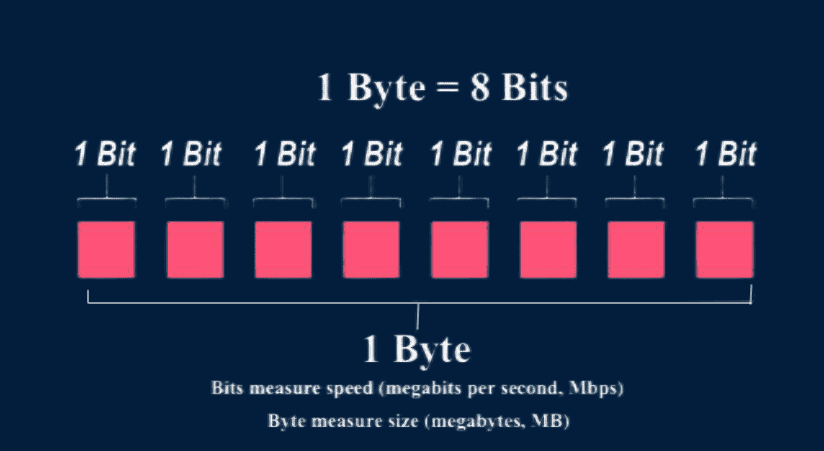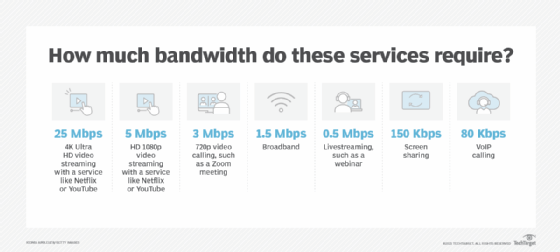Why Megabits Per Second Make A Difference for Remote Work Performance
Why Megabits Per Second Make A Difference for Remote Work Performance
Blog Article
Demystifying Megabits Per Second: An Overview to Selecting the Right Internet Plan
Recognizing the concept of megabits per second (Mbps) is important when selecting an internet plan that aligns with your specific needs. With the wide range of strategies available, exactly how do you determine which one is right for you?
Understanding Megabits Per 2nd

To understand the significance of Mbps, it's important to acknowledge that it mirrors the maximum transmission capacity readily available for information transfer. For example, a plan offering 100 Mbps enables the simultaneous transmission of information at that rate, though real speeds may differ as a result of network congestion, distance from the service copyright, and the performance of your home network tools.
Furthermore, recognizing the difference in between megabytes and megabits is crucial. While megabits denote the rate of information transfer, megabytes (1 byte = 8 little bits) determine the size of files. Downloading a 100 Megabytes data on a 100 Mbps link theoretically takes about 8 secs, disallowing any kind of disruptions.
Ultimately, picking a proper Mbps ranking based on your house's internet use is vital for guaranteeing a satisfactory online experience.
Exactly How Internet Speed Impacts Activities
Internet speed plays an essential role in identifying exactly how successfully people can engage in various on the internet tasks. Standard activities like surfing web sites or examining emails commonly call for lower rates, often around 1-5 Mbps. Megabits Per Second.
Online gaming, another preferred activity, additionally relies greatly on internet speed. A stable link of at least 15-25 Mbps can supply a competitive side and minimize latency, which is essential for real-time communications. On the other hand, video clip conferencing applications, significantly vital for remote work, take advantage of speeds of at the very least 3-8 Mbps for clear sound and video quality.
In houses with numerous users, simultaneous tasks can strain data transfer. In such cases, greater speeds-- 50 Mbps or more-- are recommended to fit varied requirements without a decline in efficiency. Therefore, comprehending the connection between internet speed and certain online activities is crucial for picking a proper plan that meets private or family needs efficiently.
Different Kinds Of Internet Strategies
Picking an appropriate internet plan requires an understanding of the numerous alternatives readily available on the market. Access provider (ISPs) normally offer a number of sorts of strategies, each satisfying different individual needs and choices.
Broadband plans are the most usual, providing high-speed internet using cable television or DSL connections. These strategies appropriate for families that take part in several online tasks all at once, such as video gaming, video clip, and streaming conferencing - Megabits Per Second. Fiber-optic plans, while less widely available, use the fastest speeds and the ideal efficiency, making them perfect for tech-savvy users or those with extensive transmission capacity demands
Set cordless and satellite strategies offer areas where standard wired connections are unreliable or unavailable. While they can websites be advantageous for country individuals, they usually include greater latency and lower speeds compared to broadband choices.
Mobile hotspot prepares permit customers to access the internet via mobile networks, providing flexibility for those who need internet on the go. Finally, some ISPs use tiered strategies with page differing rates and information caps, making it possible for customers to select a plan that lines up with their usage patterns and spending plan. Understanding these various kinds of internet plans is critical in making an educated choice.
Establishing Your Speed Requirements
Regularly examining your speed requires is crucial for choosing a net plan that fits your way of living. Understanding the requirements of your household or service can help in picking a suitable plan.
Next, consider the tasks you engage in online. Fundamental jobs such as browsing and emailing commonly need reduced speeds, around 1-5 Mbps. Streaming videos in high meaning, online pc gaming, or huge file downloads may demand speeds upwards of 25 Mbps or more.
In addition, take into account the number of customers. Megabits Per Second. A household with multiple people streaming web content or pc gaming at the exact same time will certainly call for considerably a lot more transmission capacity than a single-user scenario
Finally, bear in mind that internet rates can be affected by factors such as network congestion and the high quality of your router. By completely analyzing your speed needs, you can make an informed decision, making sure that your internet plan straightens with your everyday use and future needs.
Tips for Picking the Right Plan
Picking the right internet plan requires careful consideration of numerous key elements to ensure it satisfies your requirements. Assess your use patterns-- whether you are streaming, video gaming, or working from home-- since these activities require different transmission capacity levels. Typically, houses with high-bandwidth activities or numerous users will certainly benefit from higher-speed strategies.
Next, take a look at the data caps related to various plans. Some carriers impose restrictions on information check out this site use, which might result in surcharges or strangled rates upon surpassing those restrictions. Picking an unlimited data plan may be beneficial for heavy users.
Additionally, consider the dependability of the provider. Research study customer testimonials and ask about the provider's uptime and customer support performance. If it lacks dependability or support., a cheaper plan may not be a great offer.
Finally, review marketing deals and agreement terms. While introductory prices can be attractive, recognize the long-term expenses and whether the plan requires a prolonged contract. By evaluating these elements, you can make an educated choice that straightens with your internet requirements and budget plan, ensuring you pick the most appropriate plan for your home.

Conclusion
Finally, understanding megabits per second (Mbps) is essential for choosing an ideal internet plan. Analyzing household use patterns and the needs of connected gadgets can dramatically influence the selection of plan. By acknowledging the details speed needs for numerous on-line tasks, individuals can make educated choices that boost their general internet experience. Inevitably, choosing a strategy with appropriate transmission capacity guarantees satisfaction and performance in browsing the electronic landscape.
Recognizing the principle of megabits per second (Mbps) is important when picking a web plan that straightens with your certain demands. Hence, comprehending the connection in between internet rate and details online tasks is critical for selecting a proper plan that fulfills individual or family members needs successfully.
Mobile hotspot intends permit users to access the internet through mobile networks, providing adaptability for those that require internet on the go. Some ISPs use tiered plans with differing speeds and data caps, allowing customers to pick a plan that lines up with their use patterns and budget plan.Frequently evaluating your speed requires is vital for selecting an internet plan that suits your way of living.
Report this page